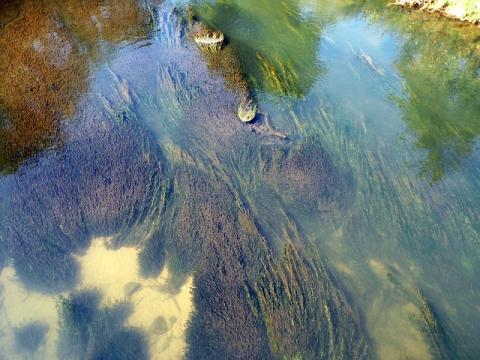
In our fast-changing world, evidence of climate change, the need for sustainable practices, and concern for local environments are always intertwined with economics. Entrepreneurs and scientists who are consistently searching for alternatives to fossil fuels and natural gas have toyed with one idea—algae biofuels. On paper, this type of biofuel sounds great because it uses a naturally occurring single-cell organism, but the byproducts of algae that have been used as fertilizers have been known to pollute natural waterways.
The scientific community is interested in algae biofuel because past sources, such as corn, are in demand as a source of food. Biofuel is also a good potential replacement for fossil fuels that are limited and has a much lower carbon footprint. Using algae also allows those who are interested in this resource to use lands that can’t be used for farming, but there is still potential for farmers to use land that is perfectly suitable for plant growth. Many companies that invest in algae farming also state that they don’t use fresh water for this process so this water can be reserved for people who need to drink it.
It isn’t enough to use natural resources in order to create more sustainable fuels for consumption, but to learn what byproducts they produce and ensure that none of these worsen one problem while solving another. Even when there are tough regulations and protocols, human error can still create problems for our local ecosystems. This is why it may make more sense to unlock algae’s potential as a source of food for humans and animals. The nori used to wrap sushi and eaten in many Asian countries, such as Japan and South Korea, is a great source of protein. Algae uses nearly three to six liters of water for each liter of algae fuel, but algae that is produced for food uses far less resources.
As such, perhaps the answer to the debate versus algae farming and biofuel could stem from a two-fold approach. It does make sense to use biofuels because they create fewer problems for the environment on the whole. Still, one must always consider how class and other socioeconomic factors cause an increase for demands on certain products. People who are more likely to favor the use of biofuels probably own a car, but people in developing nations or who are in the working class may feel that an adequate food supply is important because competition creates lower prices for people who need to feed their families.
At the moment, the production of algae as a biofuel is a noble idea that requires more research in order for it to be as beneficial as the scientific community would like. Growing algae for food could be a more responsible way to use algae until further research is conducted on how to better solve the problems caused by the byproducts of algae farms.








